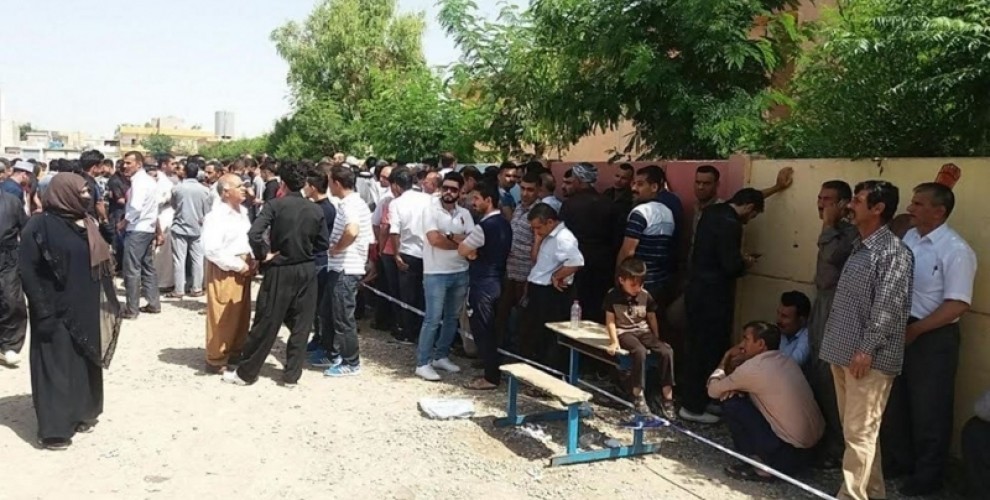Iraqi election results will not bring stability
Democratisation is the key to a stable Iraq
Democratisation is the key to a stable Iraq

Elections in Iraq are over, yet we don’t have the final results, we don’t know how the new central parliament will look like.
What we do know is that, whatever the final results, Iraq is far from finding stability. And indeed the political crisis is likely to deepen.
Iraq cannot be stabilized by the Sunni faction, nor by the Shiite faction. The fact that Shiites are majority in Iraq does not mean that they actually hold Iraq under control. No denominational or ethnic society can be superior to others in democracy. Stability is ensured in a system where each community has its own will represented and defended in political and social life. This happens when local democracy and communities take their own decisions about their future.
This democratic solution is best explained by Kurdish People's Leader Abdullah Ocean. The nation state supports a sole ethnicity and a sole belief. Which is why in the end, the individual primes in the nation state.
It is indeed this ‘unicity’ mentality which causes the biggest problems in Iraq and in the Middle East.
Should the Kurds defend the understanding of the most harmful nation-state, they fall into the biggest trap.
In fact, Kurds are the main force to change the wrong political understanding in Iraq. Kurds can play a big role in Iraq if they do not act with nation-state understanding and nationalism.
In the last 10 years, Kurds have become such a force that they actually self-govern themselves in all the areas they live.
Shengal and Ezidxan are an example of these self-governing autonomous regions.
Stability in Iraq will be achieved only within the framework of local democracy and democratic autonomy, so to guarantee freedom to all ethnicities and groups.
Sunni regions should be governed by the Sunni society. These areas also become autonomous. If local democracy develops throughout Iraq, problems will be resolved in great deal. Local democracy and autonomy create unity, not division. In Baghdad, the Brussels model can be applied. Baghdad becomes the symbol of the unity of Iraq. Thus, a democratic system based on democratic nation understanding is created, not on a sectarian, nationalist political understanding.
The victory of one or other of the parties or alliances will not solve the problems of Iraq. What political understanding will Iraq have? Would it be sectarian or nationalist? A democratic mindset should be based on the understanding of a democratic nation. Any political mind that is not based on democracy is a source of contention, conflict and instability. From this point of view, sectarianism and nationalism must be abandoned.
The Kurds can play a decisive role in changing the political mentality in Iraq. For this, however, it is necessary for the political parties of Başûr Kurdistan to undergo radical changes in their mentality.
The KDP and PUK are actually an obstacle to this change. Goran and Newayê Nû say that they have changed but they do not have a mentality and politics that will change in Iraq. They are pursuing how to be effective in Kurdistan as a liberal version of the KDP and PUK.
In Iraq, the Kurds have gained a certain status. Kurds and all communities will gain their rights through the democratization of Iraq. No social section will lose with democratization. A democratic Iraq means everyone gains.
Democratization is a 'win-win' policy.
So the Shias in Iraq, the Sunnis, the Kurds, the Yazidis, the Turkmen and the Assyrians will all win.
This will not be achieved through an election, though. With this election, we will only learn who won.
Source: Yeni Ozgur Politika